Basic Office Research
Overview
Master the essential skills of finding, evaluating, and using information effectively in the workplace. This course is perfect for office staff, administrators, interns, and anyone who needs to conduct basic research as part of their job responsibilities.
In a fast-paced work environment, being able to locate accurate information quickly and present it clearly is a valuable asset. This course introduces you to simple but effective research techniques tailored for business and administrative use.
You will learn how to:
Conduct effective research to meet workplace needs
Gather information from credible sources
Evaluate and verify facts before use
Summarise findings for easy reporting
Support decisions with well-sourced data
This course equips you with the foundational skills to carry out simple, accurate, and professional research—enhancing your contribution to office projects, reports, and daily decision-making.
Description
This unit standard provides learners with the essential knowledge and skills required to plan and conduct basic research within their own organisation. It covers fundamental research methods, including defining research objectives, designing research strategies, and collecting and analysing data. Learners will gain practical experience in applying these techniques to address specific issues or opportunities within their organisation. The course aims to enhance their ability to generate valuable insights, make informed decisions, and contribute to organisational development through effective research practices.
Course Content
Unit 1: Plan a simple research project
- The need for and the purpose of the research is clearly identified and confirmed in writing with the key stakeholders.
- The scope of the research is delineated after consultation with the key stakeholders.
- A list of at least five qualitative and quantitative research methodologies is compiled, describing the suitability of each for the research topic in question.
- A particular methodology is selected based on the most appropriate design for the research in question.
- A research plan, describing the purpose, the question or problem to be solved, the expected outcome, the methodology and any schedules, questionnaires or models that will be used is formulated according to a selected published model.
Unit 2: Gather and collate data relevant to the research question or problem
- The data is gathered according to the methodology described in the plan.
- The data is collated according to the methodology described in the plan.
- Where it has been necessary to change any part of the plan, reasons for the change are justified in writing.
- The data recorded in raw format and collated format.
Unit 3: Analyse the data obtained from the research
- A list of five data analysis techniques is compiled, describing the suitability of each for the data obtained and the research topic in question.
- A particular analysis technique is selected based on the most appropriate for the data obtained and the type of research carried out.
- The data is analysed correctly using the selected analysis technique.
- Only the relevant findings are selected for presentation in the report.
Unit 4: Prepare and present a report and recommendations based on the findings of the research
- The report includes all the elements of the plan, as well as the collated data, the analysis, the findings, a discussion with reference to published works relating to the topic, the recommendations, a conclusion and references.
- The report contains appropriate diagrams, graphs or charts that serve to illustrate and enhance comprehension of the points being made.
- The report links researched findings to published data in an integrated manner.
- The format of the report is based on a company specific template designed for the purpose.
Unit 5: Evaluate the effectiveness and utility of the research
- The effectiveness of the selected techniques is discussed with reference to the purpose of the research being carried out.
- The utility of the research is discussed with reference to the stated purpose and design.
Accreditation
- Non-accredited: Short course only
- Duration: 1h 30m
- Delivery: Classroom/Online/Blended
- Access Period: 12 Months


